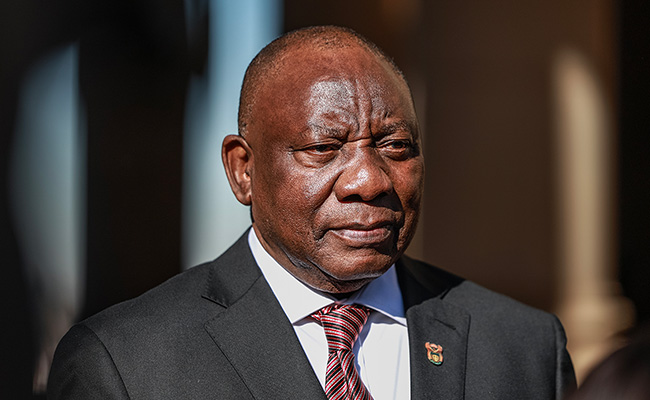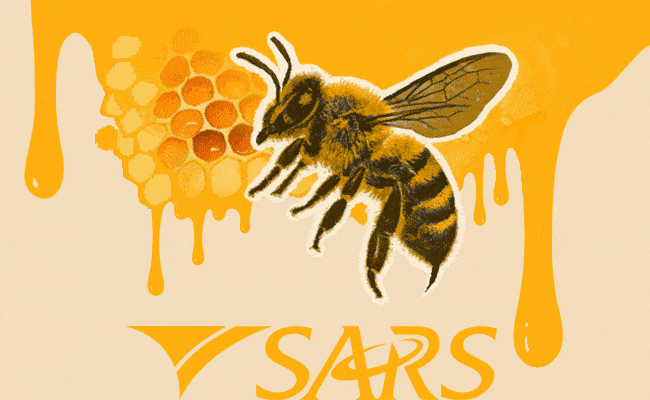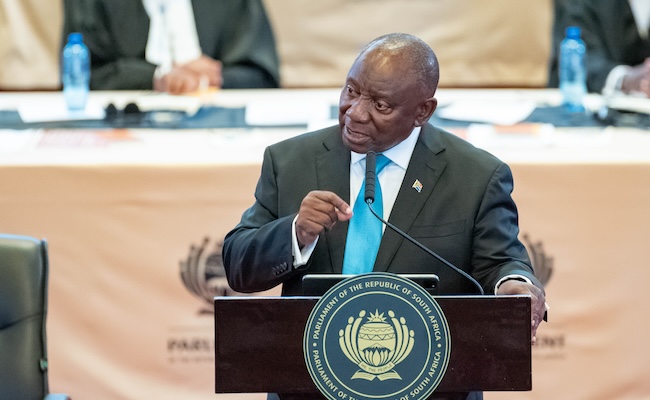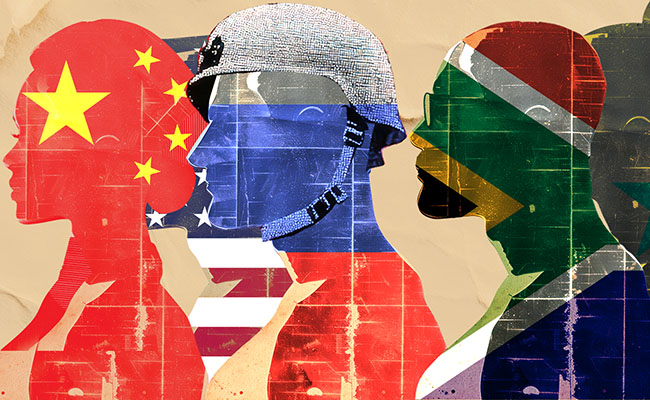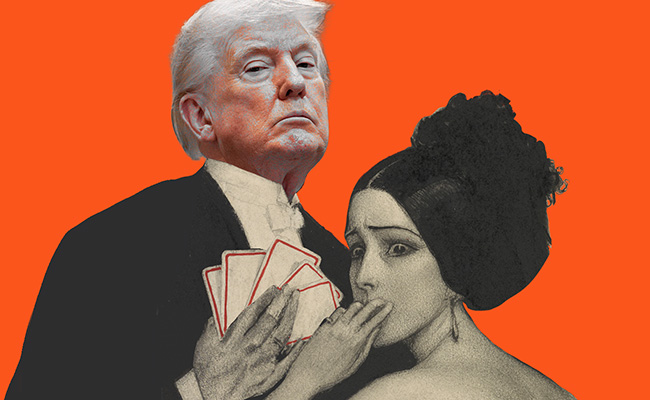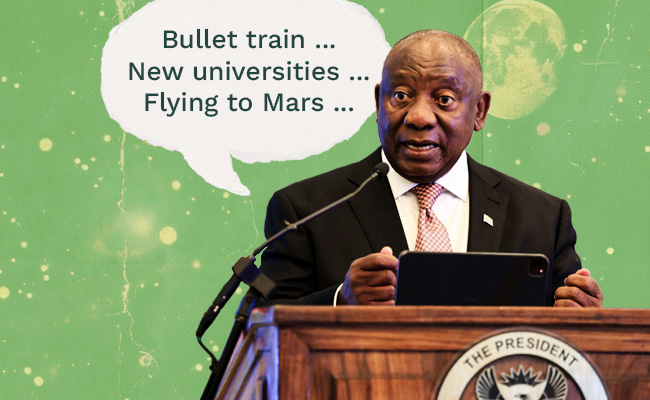When the ANC technical team walked into the room in [ANC headquarters] Luthuli House to brief the Top Seven, [national executive committee member] Nkenke Kekana’s biggest fear was that President Cyril Ramaphosa was going to resign.
Kekana described Ramaphosa as being “grey” in the face. The officials of the ANC had gathered to contemplate the reality the party was facing.
“The tension was really unbearable. It was tense,” Kekana admitted.
“You have lost an election. My biggest fear was that the president was going to step down and say, guys, I’ve lost an election as leader of the party and this is it, because if that was the case, I knew from the initial engagements, I think I knew from the side of the DA, they said they can entertain anything as long as Cyril is there.
“Now if this man stepped down … and, I mean, I was looking at him … and I was thinking when we are presenting this thing, what if this man says, guys, no more, I’m gone, because I knew at that time that any option that we put on the table would not have worked. It would have been the end of stability in this country in many ways, because we are not going to be able to form a government – it doesn’t matter with who – but at that time the ANC would not have been ready.
“Because what would then happen is that in the absence of the president, what if there is nobody who is willing to step forward? And secondly, it would also have meant that parties would have come in and said, okay, you don’t have a leader, so let’s negotiate … everything is on the table, including who should be president.”
Ramaphosa agreed that it was a stressful situation and he echoed Kekana’s sentiments.
“Yes, it was very tense,” he told me. “I would admittedly have been grey because this would have been the very first time that the ANC performed way less than 50%, when we had expected that we would perform higher than 50%.”
But he never considered resigning.
“No. Stepping down was not an option for me. I realised then that this was a moment in which leadership was needed, that we all needed to gather our wits and plot a way forward. And I was one of those who knew that my leadership was required to move forward and, of course, unless the ANC said step down, I was not going to be brow-beaten by self-pity. I needed to show up and give leadership.”
Nomvula Mokonyane [deputy secretary-general of the ANC] said the discussion that day was about how they could save the situation while accepting the outcome and still be able to shape the future.
The ANC had to consider a strategic plan to recover from the battering at the polls. Mokonyane disagreed that the ANC were in denial about losing a majority but she did acknowledge that it was a moment of reckoning.
“It was a reckoning, yes, but we never reached the stage of denial. It was surprising, it was unexpected. Even when I was still at the ROC [the election results operations centre], people were phoning and saying what’s happening there, and I would say no, it is what it is. So that meeting was, yes, a day of reckoning, but also a day where we all said we need to understand the South African voter better, because the majority of the voters didn’t vote and that was the reason why we were concerned. I was the first to accept … to say we accept the outcome of the results.”
Having been asked to put together the party’s options on the premise of the ANC going both below 40% and above 40%, [the ANC’s leaders] Fébé Potgieter-Gqubule, David Makhura and Parks Tau had been working hard to complete their report.
In it they suggested five scenarios.
First option was that they go into opposition. The second and third options were to form a grand coalition with either the DA or with the EFF and MK. The fourth option (if the ANC still obtained the largest portion of the vote but fell below 50%) was to form a minority government.
The fifth option was a government of national unity, where it would try and bring in as many parties as possible. The pros and cons of each of these scenarios were tabled.
As history records, the ANC opted for the last option, the government of national unity, with nine other parties. It has been a turbulent 18 months since, with finance minister Enoch Godongwana having to postpone delivering his national budget because of a lack of agreement from the parties.
And while investors were initially buoyed by the prospect of a government which included the pro-market DA, this coalition has yet to deliver the GNU-dividend many expected ….
Top image: South African President Cyril Ramaphosa. Picture: Gallo Images/Phill Magakoe.
Sign up to Currency’s weekly newsletters to receive your own bulletin of weekday news and weekend treats. Register here.


